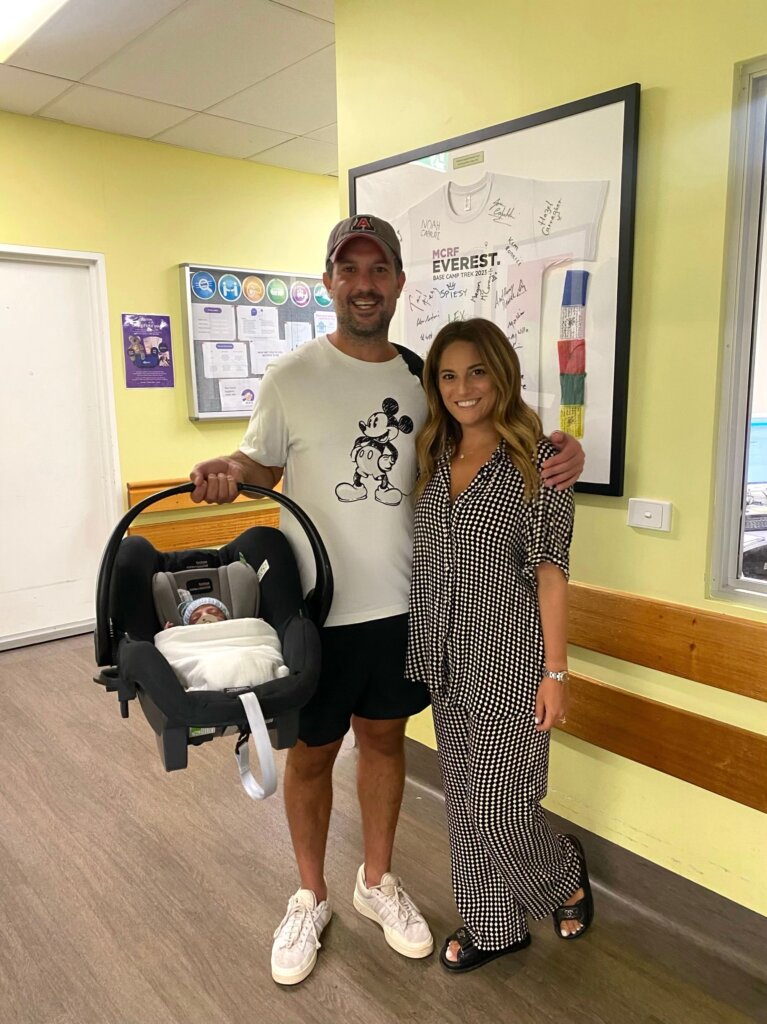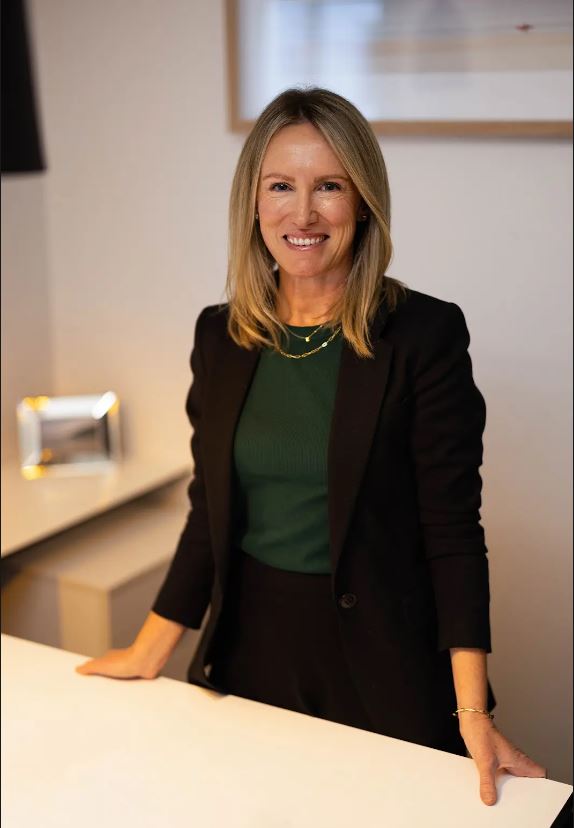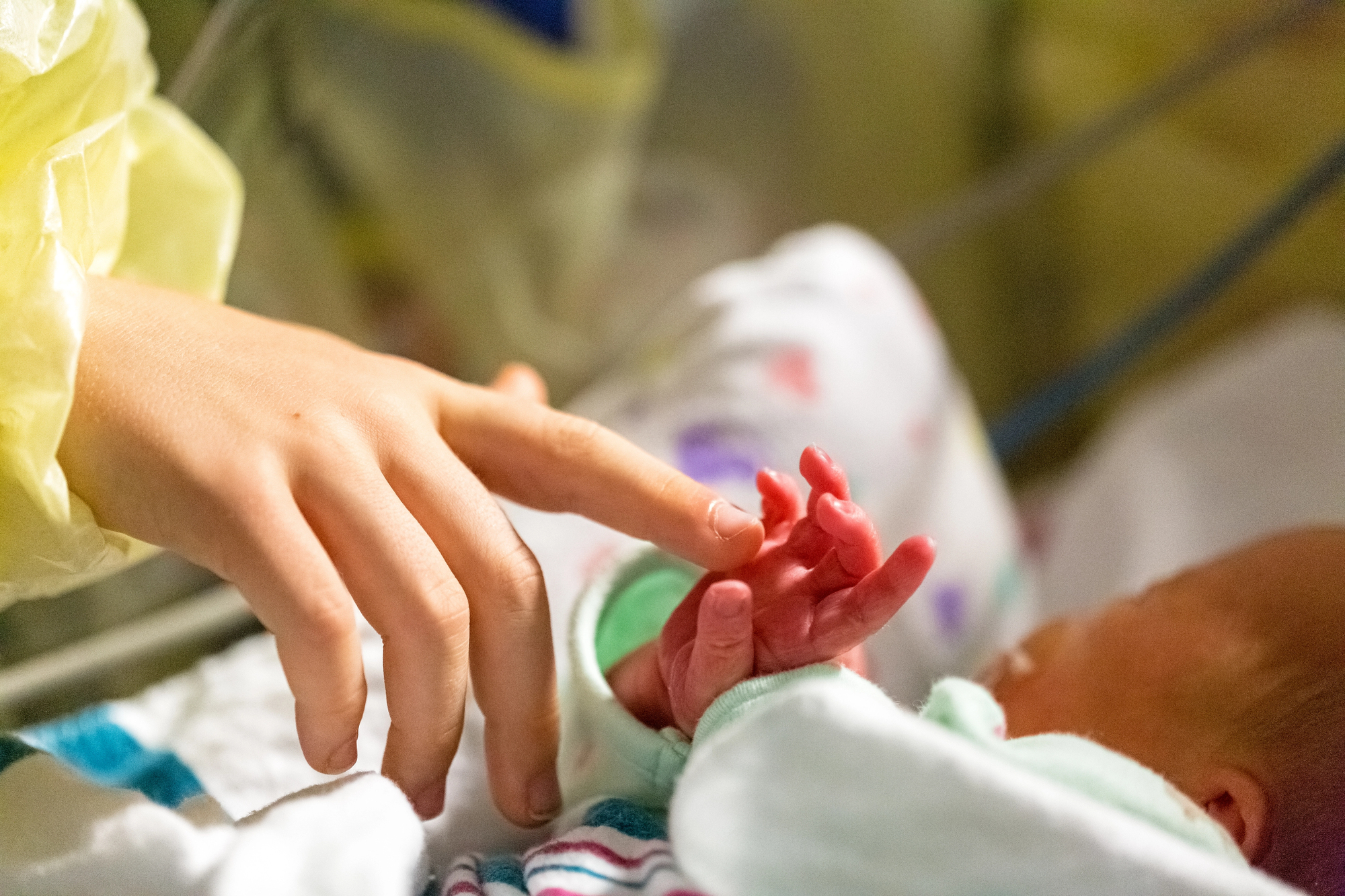Donors vow to match all donations raised for life-saving initiatives at The Royal Hospital for Women’s Giving Day
On November 13, The Royal Hospital for Women Foundation will host its annual Delivering Hope fundraiser for providing innovative support and healthcare for women and newborns.
The lives of thousands of women and newborns have been transformed thanks to the extraordinary healthcare from The Royal Hospital for Women, and this month, the community is being asked to play its part in delivering hope for thousands more.
On Wednesday, November 13, The Royal Hospital for Women Foundation will host its annual Delivering Hope appeal, where every dollar raised will go towards specialised equipment, groundbreaking research, and life-saving programs for women and newborns.
This year, major and corporate donors have generously committed to matching all donations made to the Delivering Hope appeal. As The Royal’s most significant annual fundraising event, corporate and community donors are encouraged to dig deep to provide women and newborns with outstanding and innovative care.
Foundation CEO, Elise Jennings, said the fundraiser was the most important day of the year for the hospital and its patient families.
“The funds raised on Giving Day each year are integral to the work we do at The Royal, with 80% of specialised medical equipment in the Newborn Intensive Care Unit being funded through donations,” she said.
“All donations – big or small – make a real difference to the lives of the women and newborns we care for here at The Royal.”
The Delivering Hope appeal is a 12-hour telethon-style event, bringing together clinicians, patients, media, ambassadors, and the community to raise critical funds for the hospital, which is celebrating its 30th anniversary this year.
Please see below one of their amazing stories:
The Newborn Intensive Care Unit (NICU) at The Royal is the largest in the state and is renowned for research, programs and exceptional care that leads practices across Australia and the world.
Last year, Nicole Morris and her husband Jeremy Rooz were thrilled when they found out that they had fallen pregnant naturally right before their IVF was due to start. They were on their way to having the baby they had dreamed of since meeting six years prior.
With a family history of high-blood pressure, Nicole was aware that she had an increased risk of developing preeclampsia in her pregnancy.
Preeclampsia is a serious condition, usually characterised by high blood pressure, protein in the urine and severe swelling. Preeclampsia can be extremely harmful to both mum and baby if not treated, and can often result in pre-term birth.
When pregnancies don’t go to plan, The Royal’s expertise is crucial. While under monitoring for her blood pressure, Nicole developed gestational diabetes at 30 weeks.
At 32 weeks, Nicole attended her routine appointment with her midwife, Nadia, which included blood pressure and glucose monitoring.
Luckily, it was here that she began to feel faint, her face went puffy and vision blurred. The Royal’s midwives and nurses swung into action and grouped around her.
With blood pressure of 155/110, Nicole needed urgent care for both her and baby. The Royal’s Dr Helen Barrett was there for Nicole during this frightening time.
Nicole had been under the care of her Midwife, Nadia, in The Royal’s Midwifery program. Nadia had taken the time to understand Nicole’s history, including her seven-year history of depression and bipolar.
“The obstetric medicine team are high risk physicians of pregnancy, and we work with the other members of the multidisciplinary team(midwives,obstetricians,

Nicole knew that her history put her at a higher risk of developing postnatal depression and anxiety which currently affects one in seven women within the first year of giving birth.
The Royal has a team dedicated to caring for women who are at risk of and show signs of postnatal depression and anxiety, or other mental health concerns, from their first appointment here and into the postnatal period
“It was a privilege to support Nicole during her pregnancy and in the postpartum. Our Perinatal Mental Health service supports women’s mental health and wellbeing during the perinatal period which is often a transformative time in their lives,” said Robbie Solomon, Perinatal Mental Health Midwife.
“Our team cares for women with existing or emerging mental health conditions and accompanies them as they transition to parenthood or add another child to their family – looking after women during pregnancy, around the time of birth, the time as an inpatient,
and if needed and they live locally, in the weeks or months afterwards.”
On 14 March 2024, while on bed rest in The Royal’s antenatal ward, Nicole’s blood pressure rose to an alarming rate. It was Dr Antonia Shand from The Royal’s Maternal Fetal Medicine (MFM) department who explained to Nicole that they would need to have an emergency caesarean for both Nicole and her baby’s health.
“Dr Shand told me to call my partner as we were going to have our baby, the panic set in as I was only 33 weeks… Dr Shand told me that the NICU can provide much better care to my baby than my body is able to at this point,” she said.
While Dr Shand delivered the baby, midwife Nadia was with Nicole every step of the way. Explaining everything that was happening, setting expectations, and importantly ensuring that Nicole’s mental state was okay.
At 4.01pm, baby Archie was born at 33 weeks weighing 1.8kg. After his birth, Archie was rushed straight to the NICU to receive respiratory support for his tiny lungs while Nicole remained in theatre.
“No one prepares you for the hours away from your baby after a caesarean when they go to the NICU. For what felt like the longest six hours of my life, I longed to see my little boy, to touch and to hold him and to see he was okay.”
Once in the NICU and seeing Archie, it was a surreal experience, Nicole said.
“I had knowledge of special care nurseries and incubators but had no idea about these units for our tiniest babies, connected to all this equipment.”
Archie spent the next three weeks in the NICU receiving around the clock care,rogressing from Level 3, the unit’s most intensive level of care, through to Level 1.
“You really build a relationship with the nurses and doctors in there, they become family. You know about their lives, and they know about yours – it’s such a safe place.”
In 2022, thanks to philanthropic funding and donations, the NICU’s Hospital in the Home (HiTH) program was launched. The first of its kind for neonatal care, it allows 120 babies a year to go home from the unit earlier. This allows space for more babies to receive intensive care while giving parents the opportunity to take their precious baby home weeks earlier.
Nurse Eszter has been at the helm of the program since it launched. Eszter works around the clock – in the unit with the families and then at their homes through HitH. Home check-ups include weighing, cares, assisting with oxygen, feeds and providing parents the support they need.
In April, Nicole and Jeremy were told they could be part of the program and with no hesitation, enrolled with Eszter.
“The world needs a million people like Eszter, she is just one nurse, and she makes such an impact. Eszter not only shows me how to be a mum at home with Archie, she helps me to trust myself and gives me the confidence to do it on my own.”
Nicole remembers the night she was told she would be discharged from the NICU.
“I cried so much – I couldn’t fathom not having Eszter there for us every day.”
Donations to Heart for Her this end of financial year will help clinicians provide better care to every woman, baby and family and support programs like the NICU’s HitH. It also ensures we can continue to fund state-of-the-art equipment to give every baby the chance to thrive.
Currently, Eszter is visiting once or twice a week and Archie is growing into a healthy and happy little boy. Every day, Nicole and Jeremy thank the heroes at The Royal that helped them through every aspect of their complicated pregnancy and Archie’s first weeks.
“I feel as though the three doctors, my midwife and Eszter were absolutely everything I needed. Those women were brought into my life for a reason. I have never felt in better care.”

“Every donation on Giving Day provides life-changing treatment and support for women and newborns. No donation is too big or small, so we encourage anyone able to donate to visit www.royalgivingday.org,” Jennings said.
As New South Wales’ only dedicated women’s hospital, The Royal Hospital for Women serves women at all stages of life. The public hospital relies on donations from events like the Delivering Hope appeal to meet the growing demand for specialised women’s health services.
Over the past 12 months, more than 4,000 babies have been born at The Royal and the health needs of more than 10,000 women have been met across gynaecology, breast, maternity, fertility, genetics, Indigenous midwifery, maternal-fetal medicine, perinatal mental health and oncology.
Please visit www.royalgivingday.org for information.









